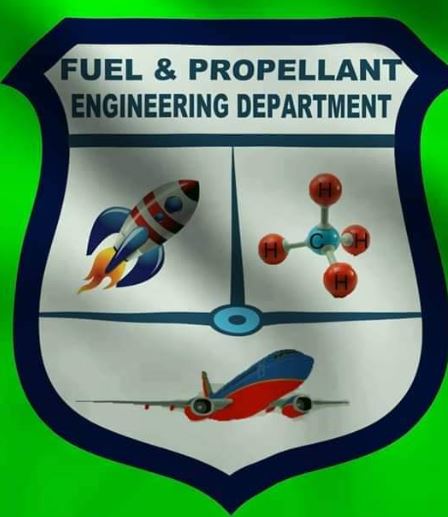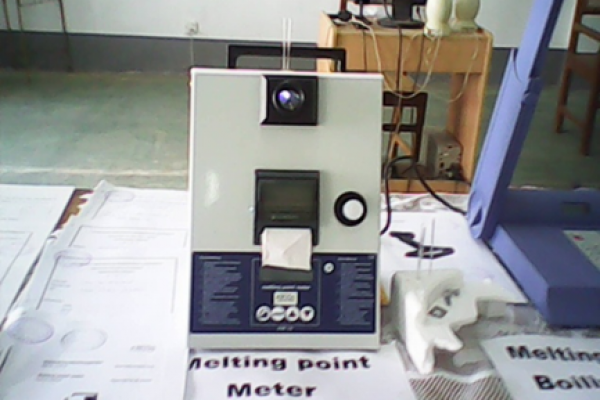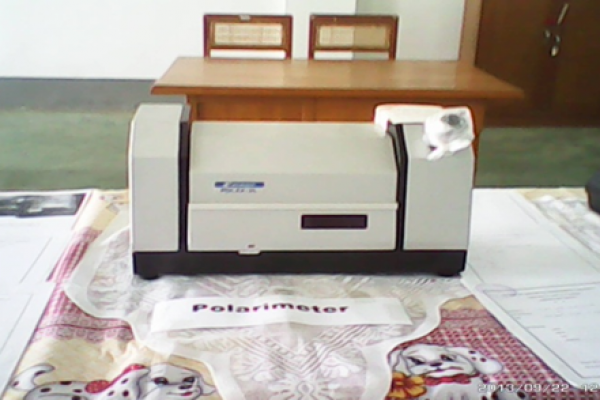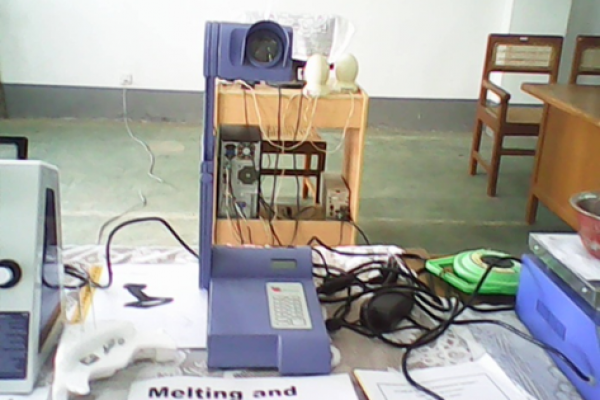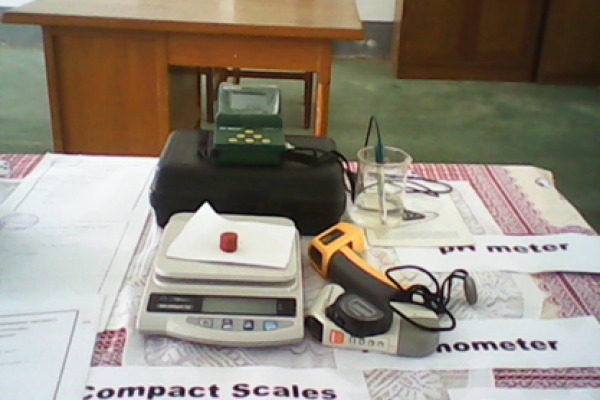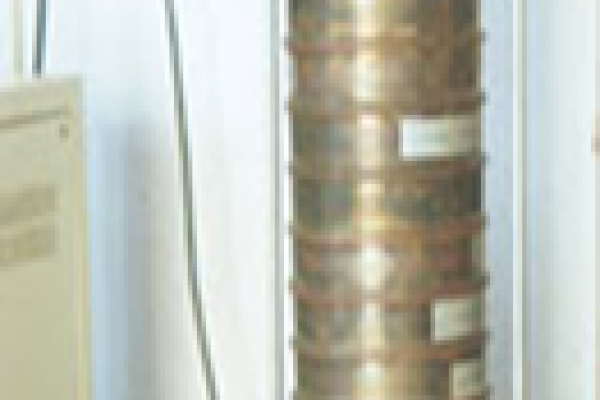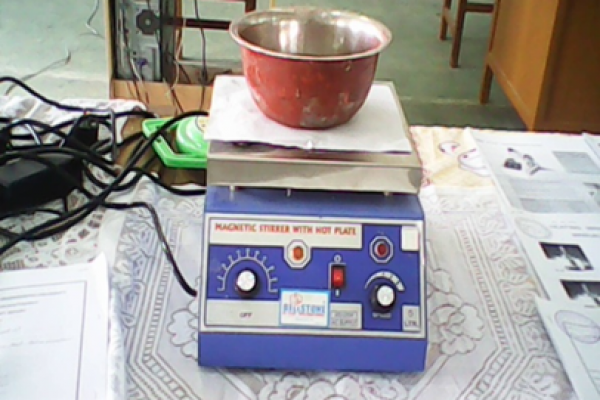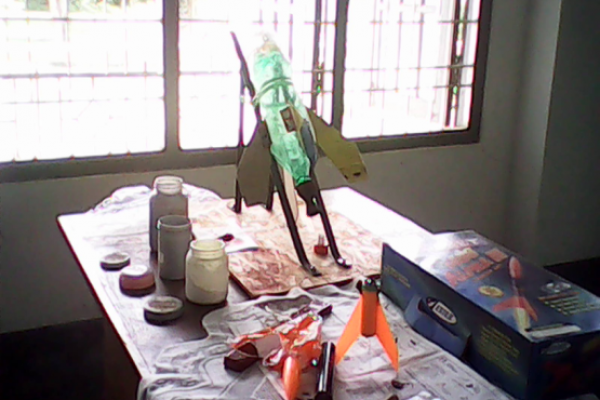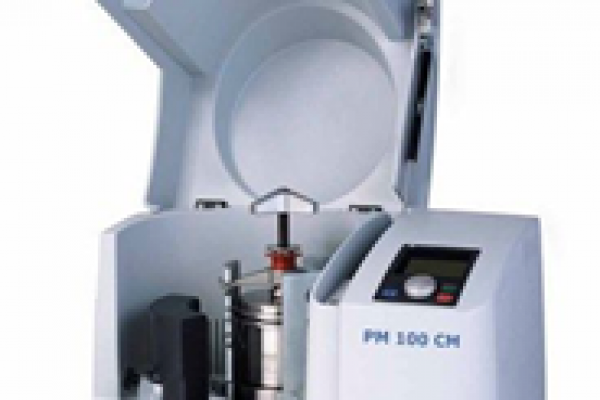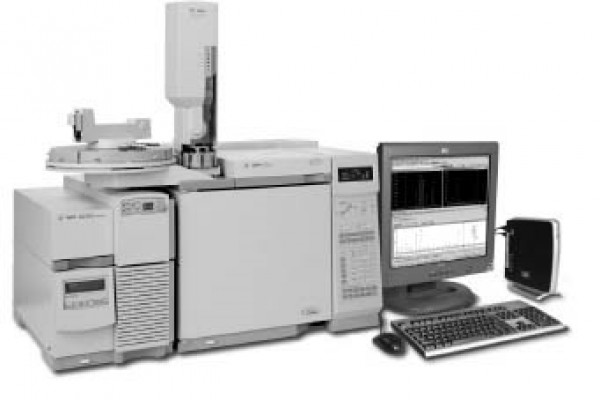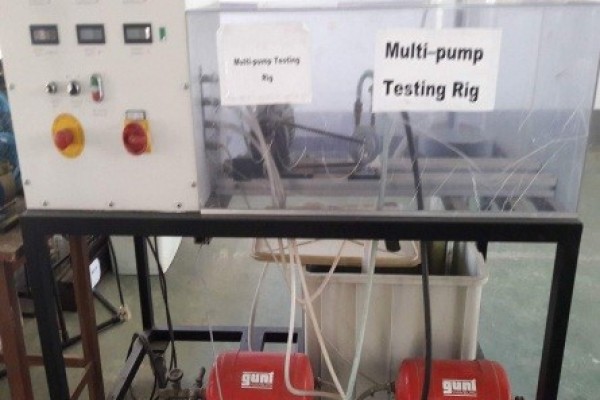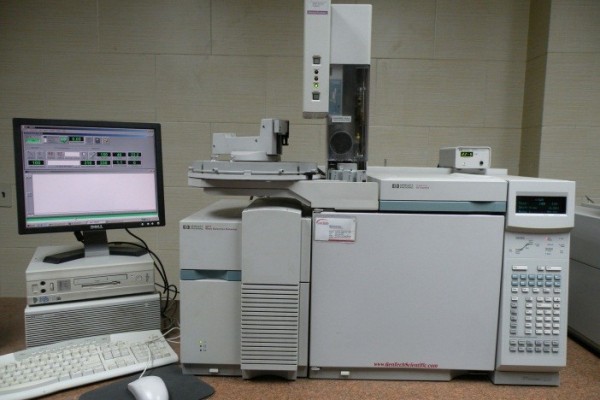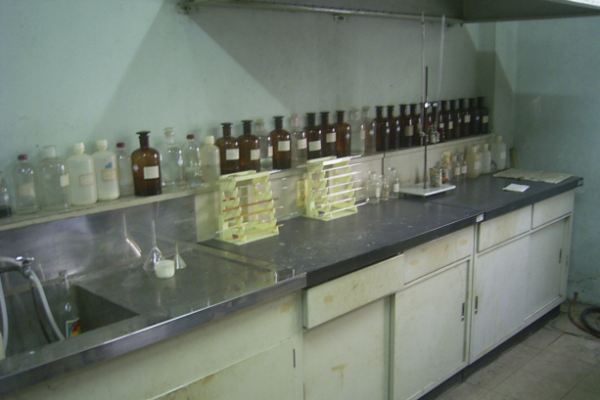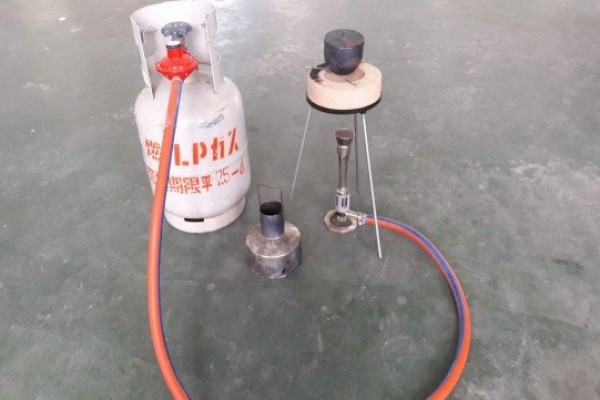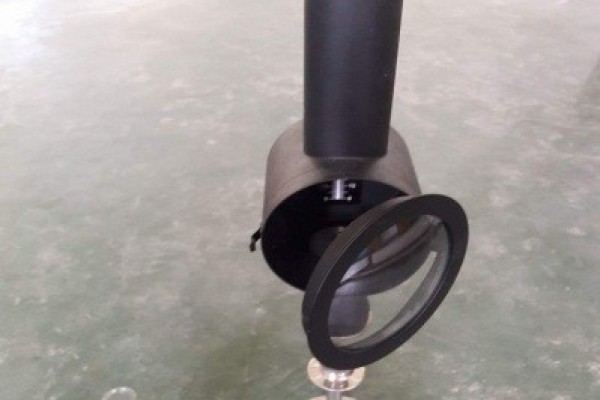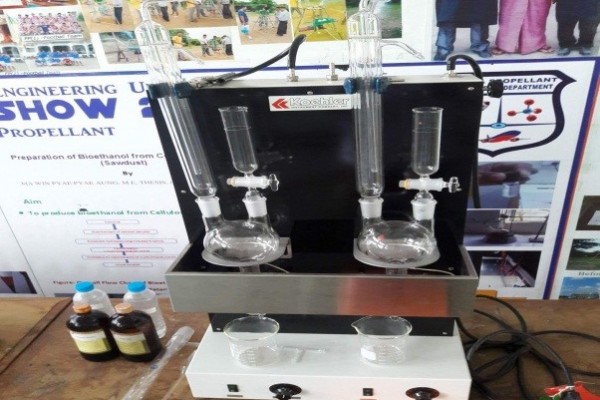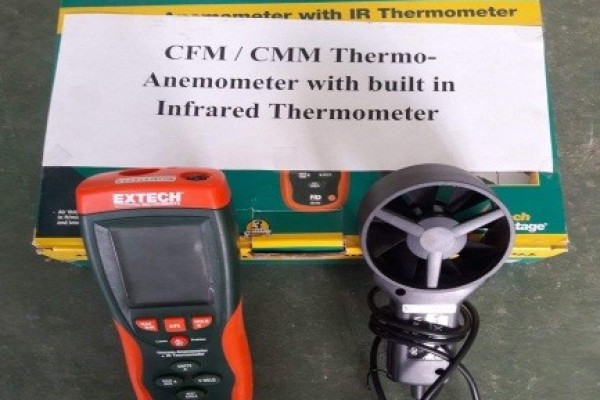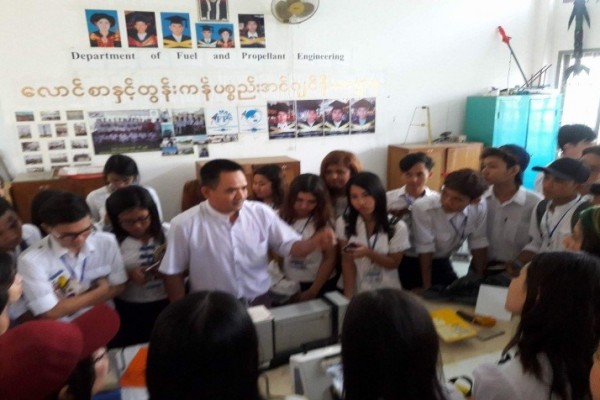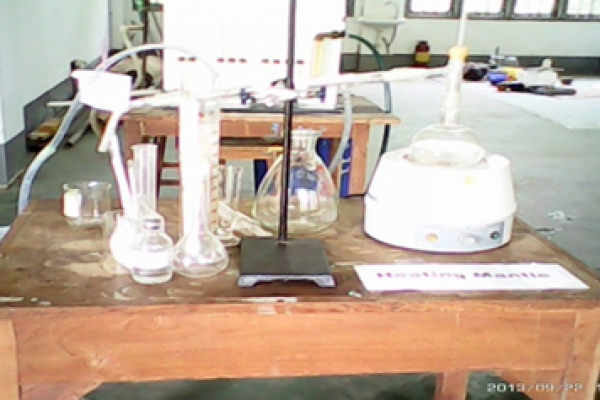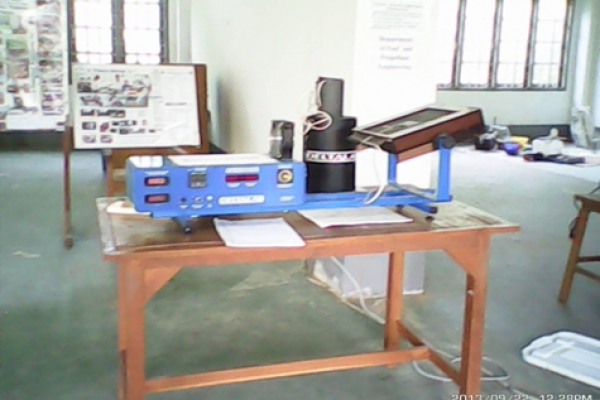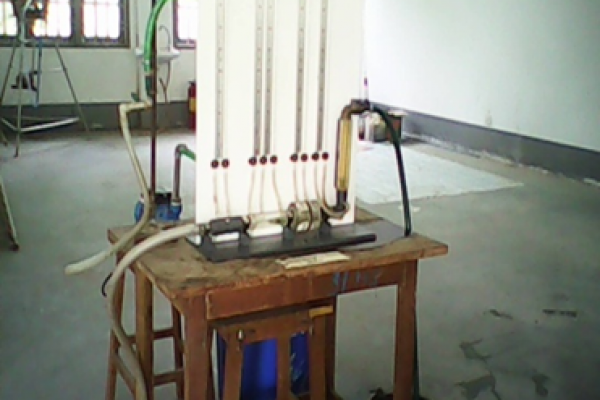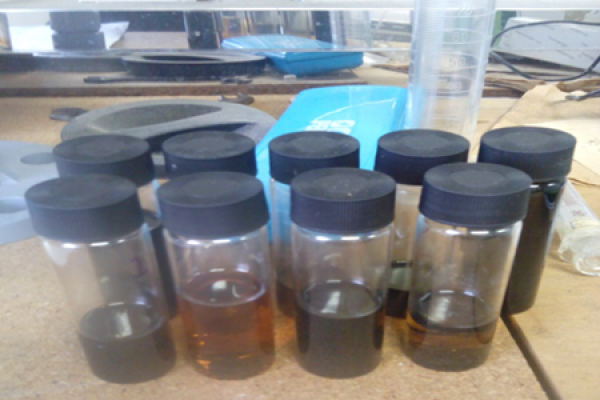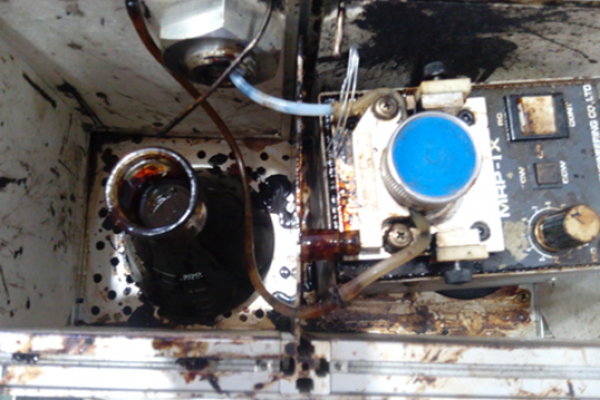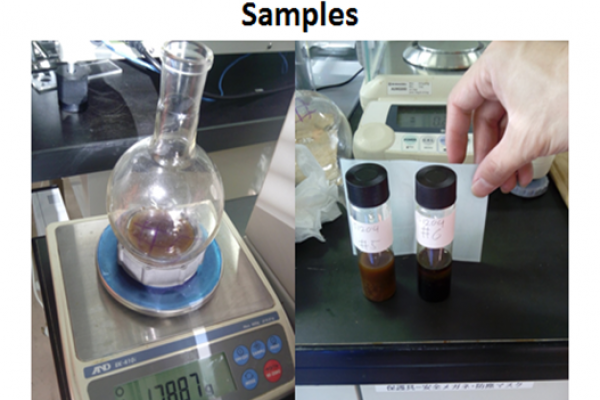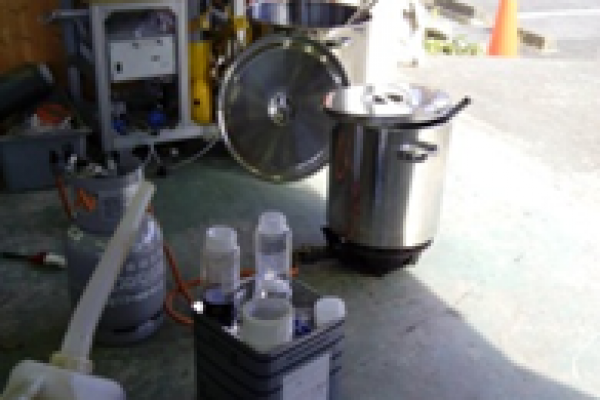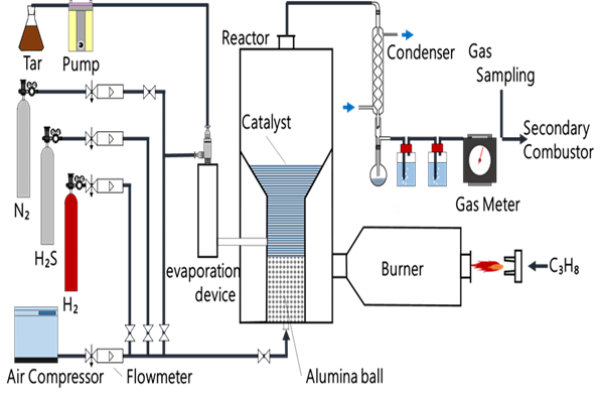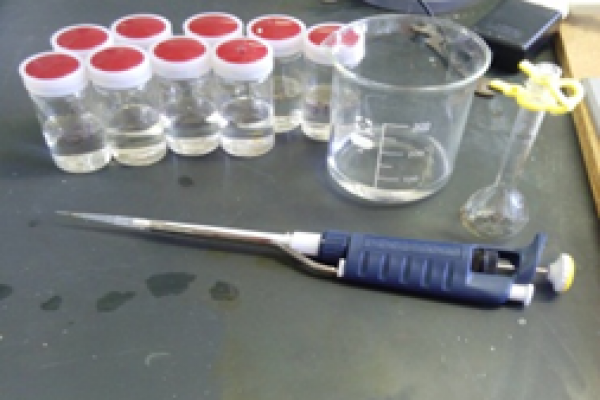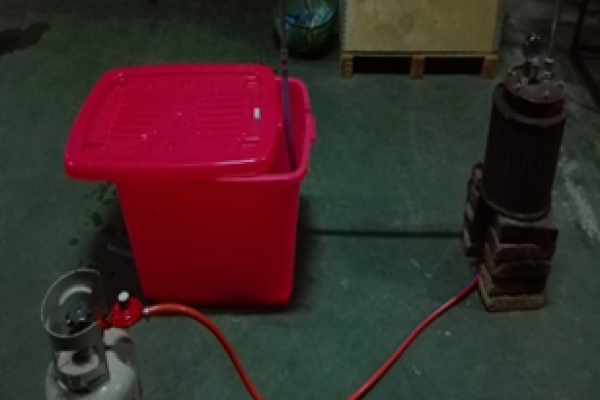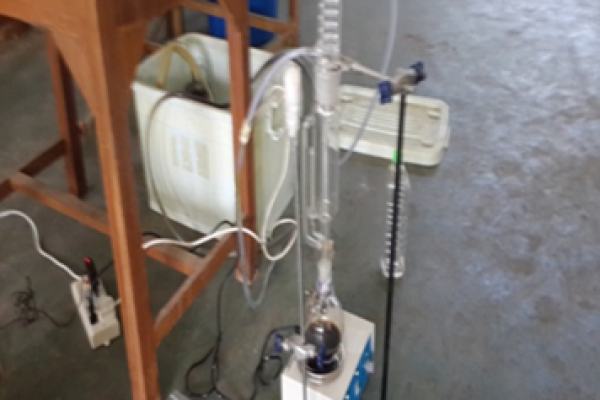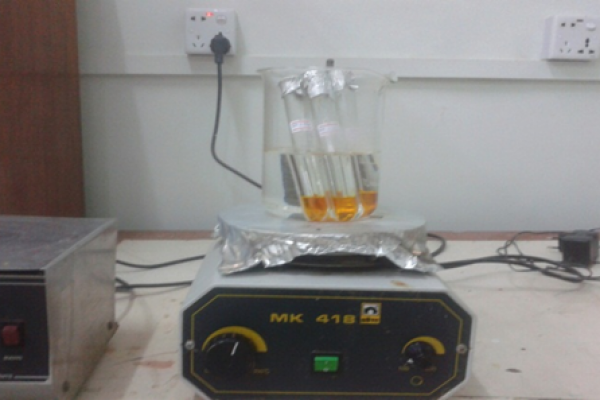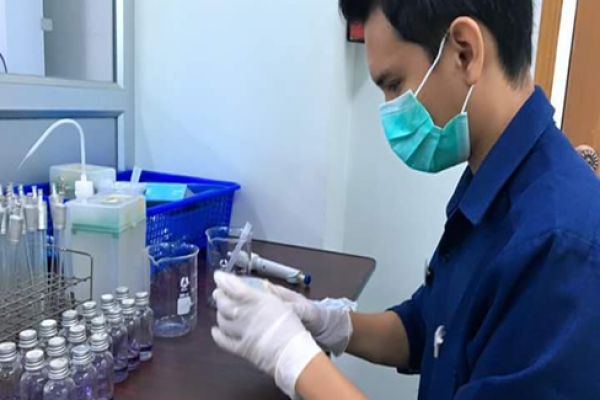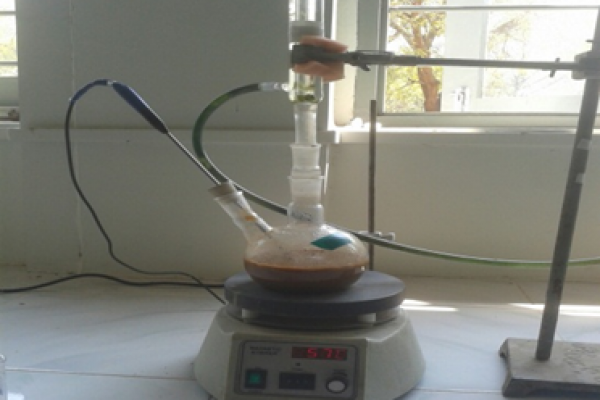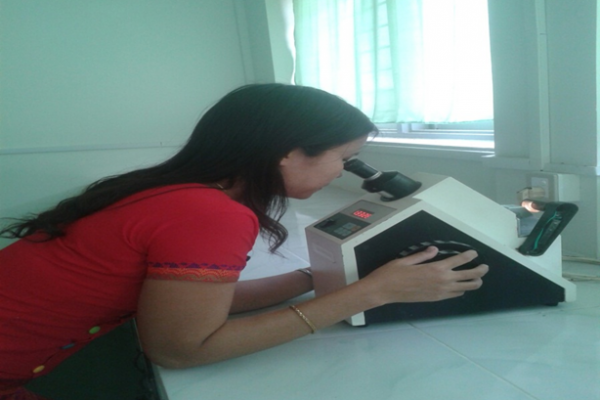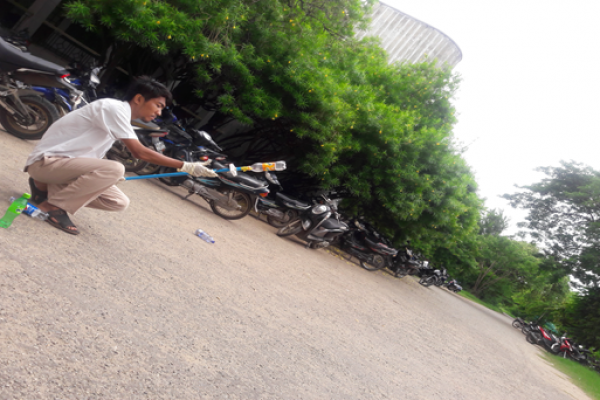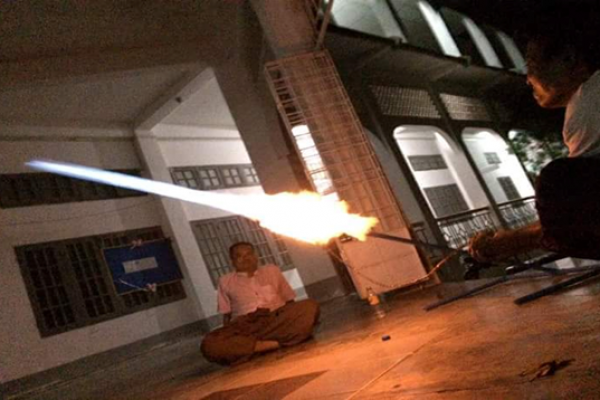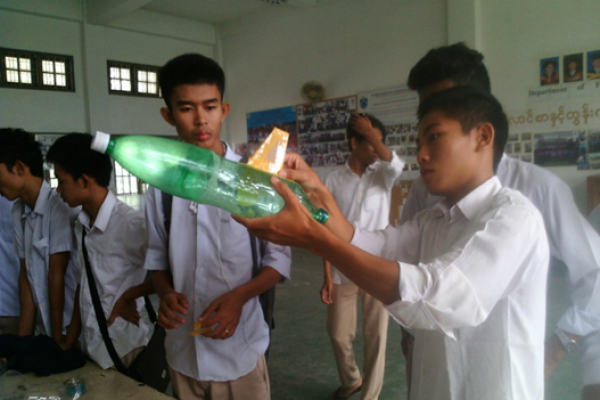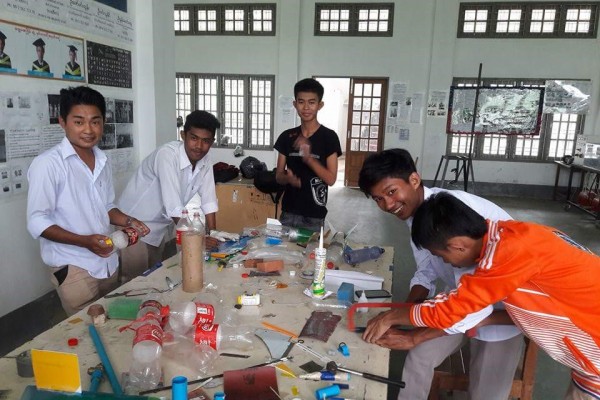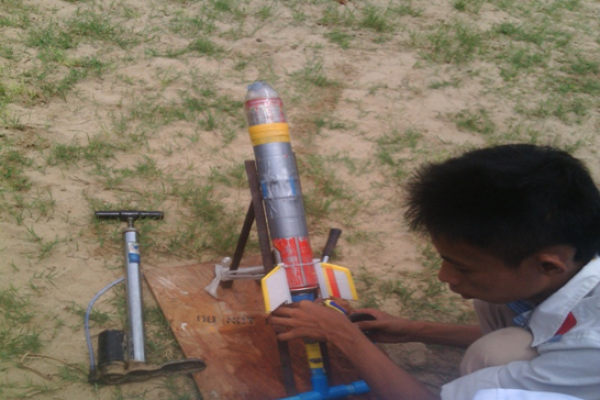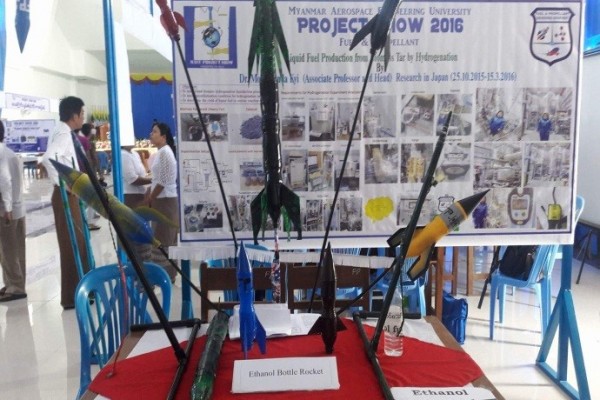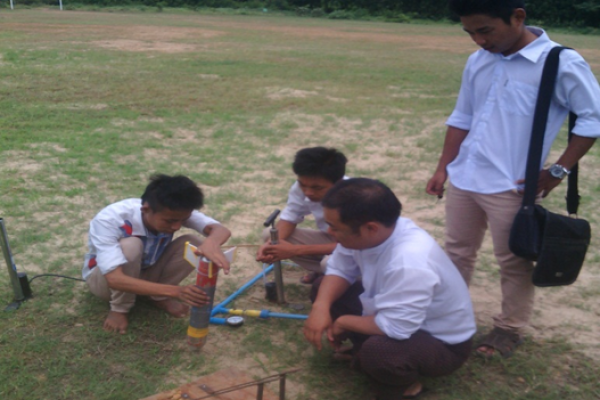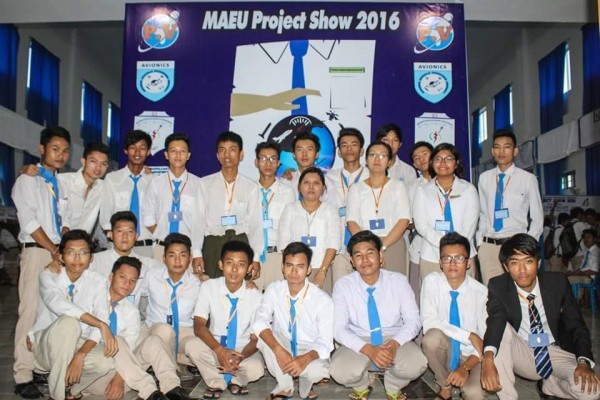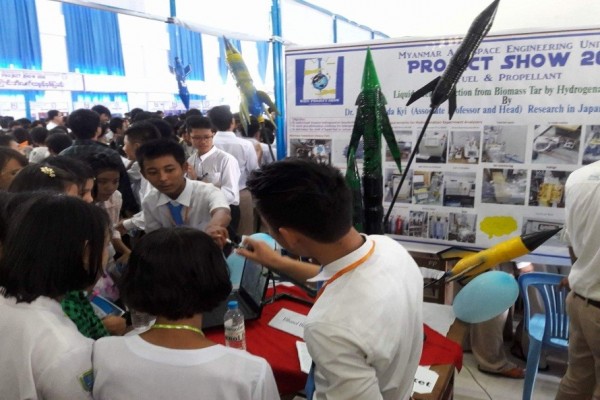Department of Fuel and Propellant Engineering
Vision
- To nurture students, develop technology, contribute to the community, provide leadership, and work toward a better future
- To become a highly prestigious educational teaching and research
- To become a highly qualified engineers, specialists with the capability to solve complex problems, innovate new things, create own research, all are related to society and environments
- To respect academic freedom and human rights and promote public trust in the department
- To provide academic programs of the high quality and standard of fuel and propellant engineers to help fulfill individuals to local and regional development
Mission
- To develop fuel and propellant engineering fields are relying on the combinations of experimental and theoretical analysis
- To provide technology that motivates students, stimulates creativity and inspires future ambitions
- To pursue unique research that is related to the regional characteristics of fuel and propellant area
- To develop an international mentality among students, faculty and staff, and to promote technology and research that has a global outlook
Outline of Fuel and Propellant Engineering Department
Fuel and Propellant technologies are important in a wide range of fields including fossil fuels forming, production and processing, synthetic fuels production, improvements of fuel ability, using solid or liquid propellants or fuel in rockets and missiles, etc… Moreover, we are focusing on energy conversion technology, construction and operation of rockets and the creation of environment protection systems. These technologies come under the category of development in chemical processes which are in a wide range of harmony with the environment.
Fuel and Propellant Engineering Department was established in 2002 at Myanmar Aerospace Engineering University, MAEU, with the classes taught by three lecturers. Daw Mon New Ni Moe, a graduate from Yangon Technological University, YTU with B.E and M.E degrees from YTU, became head of department in 2004. In 2005, Daw Mon New Ni Moe was transferred and succeeded by Dr. Moe Thanda Kyi, who is the department head at present. Dr. Moe Thanda Kyi, a graduate from Mandalay Technological University, MTU with B.E and Ph.D degrees and M.E degree from Yangon Technological University, YTU.
The first batch of graduates of Fuel and Propellant Engineering was in 2007. Post graduate (master) classes were first started in 2010, organized and supervised by Dr. Moe Thanda Kyi, Daw Thuzar Thein, Daw Khin Chaw Sandar, Daw Shwe Sin Moe and Daw Lin Lin Swe. Now, number of teaching staffs is 9.The Department has always been helping other universities, departments and academies. Therefore, Department of Fuel and Propellant Engineering is in great momentum in producing qualified engineers who will be of great service to our homeland.
Undergraduate Program
- Bachelor of Fuel and Propellant Engineering
Postgraduate Programs
- Master of Fuel and Propellant Engineering
- Ph.D Programme
Research
- Renewable Energy
- Waste to Energy
- Propellant Technology
Lab
- Quality Control Lab
- Fuel Analysis Lab
- Fluid Flow Lab
- Propellant Lab
Lab Photos
Laboratory in Fuel and Propellant Engineering Department
The students with the guidance of teachers in FP department of MAEU are carrying out the experiments by the use of aerospace technology.
Collaborative Research
Fuel and Propellant Engineering Department is collaborating with the foreign university in the area of Renewable Energy.
Student Show 2016/ Project Activities
Student show 2016 conducted by Rector, Teachers and Student Union of Myanmar Aerospace Engineering University was held at Myanmar Aerospace Engineering University for one day. That was the first time student show was held and project show was mainly presented. Seven projects created by the Fuel and Propellant students and various departments were exhibited in project show.
Curriculum for B.E. (Aerospace – Fuel and Propellant Engineering)
Vision
- To nurture students, develop technology, contribute to the community, provide leadership, and work toward a better future
- To become a highly prestigious educational teaching and research
- To become a highly qualified engineers, specialists with the capability to solve complex problems, innovate new things, create own research, all are related to society and environments
- To respect academic freedom and human rights and promote public trust in the department
- To provide academic programs of the high quality and standard of fuel and propellant engineers to help fulfill individuals to local and regional development
Mission
- To develop fuel and propellant engineering fields are relying on the combinations of experimental and theoretical analysis
- To provide technology that motivates students, stimulates creativity and inspires future ambitions
- To pursue unique research that is related to the regional characteristics of fuel and propellant area
- To develop an international mentality among students, faculty and staff, and to promote technology and research that has a global outlook
Outline of Fuel and Propellant Engineering Department
Fuel and Propellant technologies are important in a wide range of fields including fossil fuels forming, production and processing, synthetic fuels production, improvements of fuel ability, using solid or liquid propellants or fuel in rockets and missiles, etc… Moreover, we are focusing on energy conversion technology, construction and operation of rockets and the creation of environment protection systems. These technologies come under the category of development in chemical processes which are in a wide range of harmony with the environment.
Fuel and Propellant Engineering Department was established in 2002 at Myanmar Aerospace Engineering University, MAEU, with the classes taught by three lecturers. Daw Mon New Ni Moe, a graduate from Yangon Technological University, YTU with B.E and M.E degrees from YTU, became head of department in 2004. In 2005, Daw Mon New Ni Moe was transferred and succeeded by Dr. Moe Thanda Kyi, who is the department head at present. Dr. Moe Thanda Kyi, a graduate from Mandalay Technological University, MTU with B.E and Ph.D degrees and M.E degree from Yangon Technological University, YTU.
The first batch of graduates of Fuel and Propellant Engineering was in 2007. Post graduate (master) classes were first started in 2010, organized and supervised by Dr. Moe Thanda Kyi, Daw Thuzar Thein, Daw Khin Chaw Sandar, Daw Shwe Sin Moe and Daw Lin Lin Swe. Now, number of teaching staffs is 9.The Department has always been helping other universities, departments and academies. Therefore, Department of Fuel and Propellant Engineering is in great momentum in producing qualified engineers who will be of great service to our homeland.
Undergraduate Program
- Bachelor of Fuel and Propellant Engineering
Postgraduate Programs
- Master of Fuel and Propellant Engineering
- Ph.D Programme
Research
- Renewable Energy
- Waste to Energy
- Propellant Technology
Lab
- Quality Control Lab
- Fuel Analysis Lab
- Fluid Flow Lab
- Propellant Lab
Lab Photos
Laboratory in Fuel and Propellant Engineering Department
The students with the guidance of teachers in FP department of MAEU are carrying out the experiments by the use of aerospace technology.
Collaborative Research
Fuel and Propellant Engineering Department is collaborating with the foreign university in the area of Renewable Energy.
Student Show 2016/ Project Activities
Student show 2016 conducted by Rector, Teachers and Student Union of Myanmar Aerospace Engineering University was held at Myanmar Aerospace Engineering University for one day. That was the first time student show was held and project show was mainly presented. Seven projects created by the Fuel and Propellant students and various departments were exhibited in project show.
Curriculum for B.E. (Aerospace – Fuel and Propellant Engineering)
First Year B.E (Aerospace) Common courses for all degree students
| Sr No. | Course No. | Course Title | Periods per week | |||
| lect. | Tut. | Pract. | Total | |||
| 1 | Mar 1001 | Myanmar | 3 | 1 | 0 | 4 |
| 2 | E 1001 | English I | 2 | 2 | 1 | 5 |
| 3 | Math 1001 | Engineering Mathematics I | 5 | 1 | 0 | 6 |
| 4 | Ch 1001 | Engg: Chemistry | 3 | 1 | 2 | 6 |
| 5 | Ph 1001 | Engg. Physics | 3 | 1 | 2 | 6 |
| 6 | Com 1001 | Computer Science | 3 | 1 | 2 | 6 |
| 7 | PV 1001 | Engg: Drawing I | 1 | 0 | 3 | 4 |
| 8 | PV 1011 | Basic Aerospace Engg: I | 2 | 1 | 0 | 3 |
| 22 | 8 | 10 | 40 | |||
Second Year B.E (Aerospace – Fuel and Propellant Engineering)
| Sr No. | Course No. | Course Title | Periods per week | |||
| lect. | Tut. | Pract. | Total | |||
| 1 | E 2001 | English II | 2 | 1 | 1 | 5 |
| 2 | Math 2001 | Engineering Mathematics II | 4 | 1 | 0 | 5 |
| 3 | WS 2001 | Workshop Technology | 2 | 0 | 2 | 4 |
| 4 | PV 2001 | Engg: Drawing II | 1 | 0 | 3 | 4 |
| 5 | EI 2013 | Applied Electrical Engg: | 2 | 1 | 1 | 4 |
| 6 | MT 2006 | Materials Science | 3 | 1 | 1 | 5 |
| 7 | PV 2011 | Basic AerospaceEngineering | 2 | 1 | 1 | 4 |
| 8 | FP 2001 | Introduction to fuels , Rocket Propellants and combustion | 4 | 1 | 0 | 5 |
| 20 | 7 | 9 | 36 | |||
Third Year B.E (Aerospace – Fuel and Propellant Engineering)
| Sr No. | Course No. | Course Title | Periods per week | |||
| lect. | Tut. | Pract. | Total | |||
| 1 | E 3001 | English III | 2 | 2 | 1 | 5 |
| 2 | Math 3001 | Engineering Mathematics III | 3 | 1 | 0 | 4 |
| 3 | Ch 3001 | Organic Chemistry | 2 | 1 | 1 | 4 |
| 4 | PV 3204 | Strength of Materials | 2 | 1 | 1 | 4 |
| 5 | MT 3006 | Aerospace Materials | 2 | 1 | 1 | 4 |
| 6 | FP 3002 | Fluid Mechanics and Heat Transfer | 3 | 1 | 1 | 5 |
| 7 | FP 3003 | Chemical Engineering Thermodynamics I | 2 | 1 | 0 | 3 |
| 8 | PV 3001 | Engineering Drawing III | 1 | 0 | 3 | 4 |
| 9 | PV 3005 | Engineering Mechanics | 4 | 1 | 0 | 5 |
| 21 | 9 | 8 | 38 | |||
Fourth Year B.E (Aerospace – Fuel and Propellant Engineering)
| Sr No. | Course No. | Course Title | Periods per week | |||
| lect. | Tut. | Pract. | Total | |||
| 1 | E 4001 | English IV | 2 | 2 | 1 | 5 |
| 2 | Math 4001 | Engineering Mathematics IV | 3 | 1 | 0 | 4 |
| 3 | PV 4007 | Elements of Rocketry | 3 | 1 | 0 | 4 |
| 4 | PV 4003 | Aircraft Propulsion & Power Plant | 3 | 1 | 1 | 5 |
| 5 | FP 4001 | Material and Energy Balances | 3 | 1 | 0 | 4 |
| 6 | FP 4002 | Particle Mechanics | 3 | 1 | 1 | 5 |
| 7 | FP 4102 | Mass Transfer | 2 | 1 | 1 | 4 |
| 8 | FP 4103 | Chemical Engineering Thermodynamics II | 3 | 1 | 1 | 5 |
| 22 | 9 | 5 | 36 | |||
Fifth Year B.E (Aerospace – Fuel and Propellant Engineering)
| Sr No. | Course No. | Course Title | Periods per week | |||
| lect. | Tut. | Pract. | Total | |||
| 1 | FP 5001 | Unit Chemical Processes | 3 | 1 | 1 | 5 |
| 2 | FP 5002 | Chemical Kinetics and Reactor Design | 4 | 1 | 5 | 4 |
| 3 | FP 5003 | Aircraft Fuel Systems | 2 | 1 | 1 | 4 |
| 4 | FP 5004 | Based Chemicals for Fuel and Propellant Technology | 3 | 1 | 1 | 5 |
| 5 | FP 5005 | Quality Control Methods | 2 | 1 | 1 | 4 |
| 6 | FP 5006 | Plant Design and Economic Feasibility | 3 | 1 | 0 | 4 |
| 7 | FP 5008 | Explosives and Propellant Technology | 3 | 1 | 1 | 5 |
| 8 | FP 5108 | Principles and Construction of Rocketry | 3 | 1 | 1 | 5 |
| 23 | 8 | 6 | 37 | |||
Final Year B.E (Aerospace – Fuel and Propellant Engineering)
| Sr No. | Course No. | Course Title | Periods per week | |||
| lect. | Tut. | Pract. | Total | |||
| 1 | FP 6005 | Instrumentation and Automatic Process Control | 2 | 1 | 1 | 4 |
| 2 | FP 6007 | Pollution Control,Maintenance and Industrial Safety | 2 | 1 | 1 | 4 |
| 3 | FP 6107 | Environmental, Health and Occupational Safety Management in Fuel and Propellant Industries | 3 | 1 | 0 | 4 |
| 4 | FP 6000 | Design Project | 0 | 10 | 10 | |
| 5 | PV 6008 | Aviation management | 3 | 1 | 0 | 4 |
| 6 | PV 6009 | Air worthiness and Legislations | 3 | 1 | 0 | 4 |
| 7 | PV 6012 | Aircraft maintenance | 2 | 0 | 2 | 4 |
| 15 | 5 | 14 | 34 | |||
